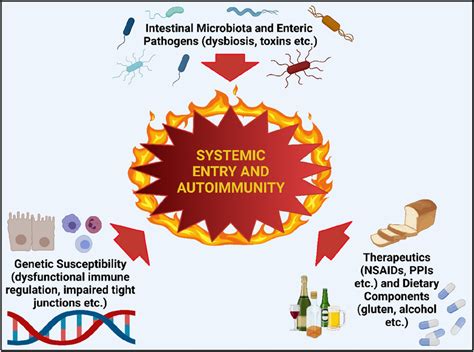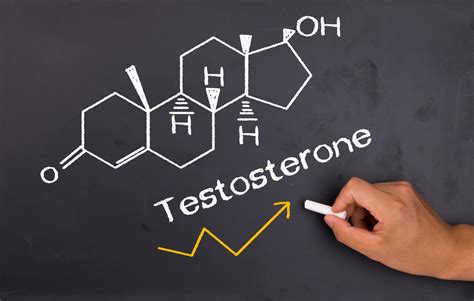How does the male-specific hormone profile influence the development and progression of autoimmune conditions in men compared to women?

Understanding the Sex Disparity in Autoimmune Diseases
Autoimmune conditions, where the body’s immune system mistakenly attacks its own tissues, affect millions worldwide. A striking feature of these diseases is their pronounced sex disparity; women are disproportionately affected, accounting for up to 80% of all autoimmune cases. While factors like genetics, environment, and lifestyle contribute, the significant difference between sexes points strongly to the profound influence of sex hormones. This article delves into the male-specific hormone profile, primarily focusing on androgens like testosterone, and explores how these hormones modulate the immune system, thereby impacting the development and progression of autoimmune conditions in men.
The Male Hormonal Landscape and Immune Regulation
The male endocrine system is dominated by androgens, with testosterone being the most abundant and potent. Produced primarily in the testes, testosterone and its metabolites (such as dihydrotestosterone, DHT) exert wide-ranging effects beyond reproductive functions, significantly influencing immune cell development, activity, and cytokine production. Androgen receptors are found on various immune cells, including T cells, B cells, macrophages, and dendritic cells, indicating a direct pathway for hormonal modulation of immune responses.

Testosterone’s Immunomodulatory Role
Generally, testosterone is considered to have immunosuppressive or anti-inflammatory properties, which might explain, in part, the lower prevalence of many autoimmune diseases in men. Studies suggest that testosterone can decrease the activity of B cells, reduce the production of pro-inflammatory cytokines like TNF-alpha, IL-1, and IL-6, and promote the development of regulatory T cells (Tregs), which are crucial for maintaining immune tolerance. It can also influence the differentiation of T helper cells, potentially skewing the response away from pro-inflammatory Th1 and Th17 pathways often implicated in autoimmunity.
Impact on Autoimmune Disease Development and Progression
While women exhibit a higher incidence of many autoimmune conditions, men are not immune, and their hormonal profile often leads to different disease presentations or even a higher prevalence in specific conditions. The protective effects of testosterone may be dose-dependent or context-specific, and disruptions to this hormonal balance can alter disease susceptibility.

Conditions Where Male Hormones May Offer Protection
For diseases like Systemic Lupus Erythematosus (SLE) and Rheumatoid Arthritis (RA), where women are predominantly affected, higher testosterone levels in men are hypothesized to contribute to their lower incidence and often milder disease course. In men with SLE, lower testosterone levels have sometimes been correlated with increased disease activity, suggesting a protective role for adequate androgen levels. Similarly, in RA, men often present with less severe disease and respond differently to treatments, possibly due to hormonal influences.
Conditions with Higher Male Prevalence or Distinct Presentation
Conversely, some autoimmune conditions, such as Ankylosing Spondylitis (AS), Psoriasis, and Type 1 Diabetes, show either a higher prevalence in men or a similar prevalence with distinct disease characteristics. In AS, men are affected more frequently and often experience more severe spinal involvement. While the exact role of male hormones is still being unravelled, it’s proposed that androgens might influence certain genetic pathways (e.g., HLA-B27) or immune responses in a way that contributes to disease development or specific manifestations in men.

Comparing Male and Female Hormonal Influences
The striking sex differences in autoimmune disease prevalence are often attributed to the opposing effects of male and female sex hormones. While androgens are generally considered immunosuppressive, estrogens, particularly at higher physiological levels, can often be immunostimulatory, potentially exacerbating autoimmune responses. The complex interplay between these hormonal axes, coupled with genetic and environmental factors, creates distinct immunological landscapes in men and women, leading to varied susceptibilities and disease trajectories.

Clinical Implications and Future Directions
Understanding the precise mechanisms by which male hormones influence immunity opens doors for novel therapeutic strategies. For men with autoimmune conditions, assessing androgen levels and potentially modulating them could offer a personalized approach to treatment. For instance, in conditions where testosterone offers protection, maintaining healthy levels might be beneficial. Conversely, in conditions where androgens might play a role in exacerbation, different strategies might be needed. Future research will continue to elucidate these complex interactions, aiming to develop sex-specific diagnostics and treatments that account for the unique hormonal environment of each individual.

Conclusion
The male-specific hormone profile, predominantly characterized by androgens like testosterone, plays a crucial and complex role in shaping the immune system’s response to self-antigens. While often conferring a protective effect against many autoimmune conditions, these hormones can also influence the specific presentation or even increase susceptibility to others. Recognizing these sex-specific differences is vital for a comprehensive understanding of autoimmune diseases and for paving the way for more targeted, effective, and personalized therapeutic interventions for men.









